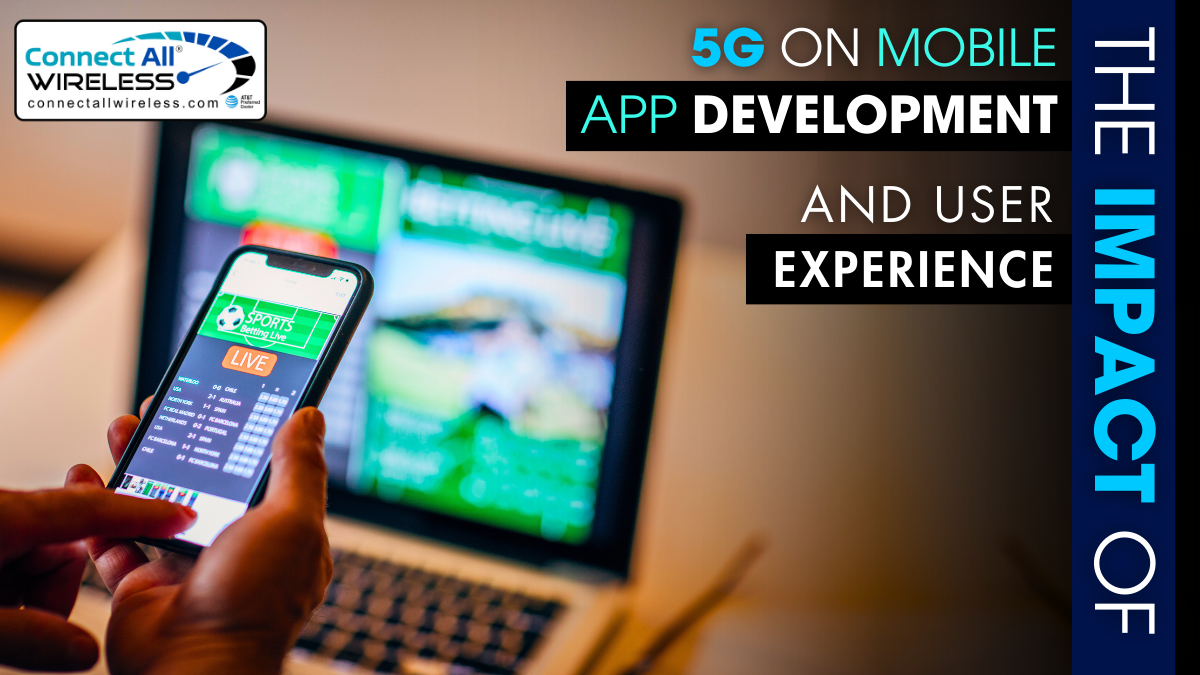The Impact of 5G on Mobile App Development and User Experience
May 15, 2024In the ever-evolving landscape of mobile technology, the emergence of 5G networks stands as a transformative force, promising unprecedented speed, reliability, and connectivity. As this next-generation wireless technology continues to roll out across the globe, its impact on mobile app development and user experience cannot be overstated.
In this article, we will explore the significant ways in which 5G is reshaping the mobile app ecosystem, from enabling new capabilities to enhancing user engagement and satisfaction.
1. Enhanced Speed and Performance:
One of the most immediate and tangible benefits of 5G for mobile app development is its remarkable speed and low latency. With download speeds potentially reaching up to 100 times faster than 4G LTE, developers now have the opportunity to create richer, more immersive experiences that were previously constrained by network limitations.
Whether it’s streaming high-definition video content, downloading large files, or playing graphics-intensive games, 5G opens the door to a new realm of possibilities for app developers to push the boundaries of what is achievable on mobile devices.
2. Seamless Streaming and Real-Time Interactivity:
5G’s low latency and high bandwidth pave the way for seamless streaming and real-time interactivity within mobile apps. Video streaming platforms, for example, can deliver higher-quality video content without buffering or lag, providing users with a more immersive viewing experience.
Similarly, multiplayer gaming apps can leverage 5G to enable smoother game play and real-time communication among players, fostering greater engagement and competitiveness.
3. Augmented Reality (AR) and Virtual Reality (VR) Experiences:
The combination of 5G and augmented reality (AR) and virtual reality (VR) technologies holds tremendous potential for transforming user experiences in mobile apps. With 5G’s high throughput and low latency, AR apps can deliver more realistic and interactive overlays on the physical world, whether it’s for gaming, navigation, or retail experiences.
VR applications, on the other hand, can provide truly immersive environments with minimal latency, opening up new possibilities for virtual meetings, training simulations, and entertainment experiences.
4. IoT Integration and Smart Devices:
5G’s robust connectivity and support for massive IoT (Internet of Things) deployments enable deeper integration of smart devices and sensors into mobile apps. Developers can leverage 5G to create apps that seamlessly interact with a wide range of connected devices, from smart home appliances and wearables to industrial sensors and autonomous vehicles.
This integration not only enhances the functionality of mobile apps but also enables new use cases in areas such as home automation, healthcare, and smart cities.
5. Personalized and Context-Aware Experiences:
With 5G’s ability to handle vast amounts of data in real-time, mobile apps can deliver more personalized and context-aware experiences to users. By leveraging advanced analytics and machine learning algorithms, developers can analyze user behavior, preferences, and location data to tailor app content and features dynamically.
Whether it’s recommending relevant products, delivering targeted notifications, or providing location-based services, 5G-powered apps can offer a level of personalization that enhances user engagement and satisfaction.
6. Enhanced Security and Privacy:
While the proliferation of connected devices and data streams presents new security challenges, 5G also brings opportunities for enhancing security and privacy in mobile apps. With features such as network slicing and improved encryption protocols, 5G networks offer greater protection against cyber threats and unauthorized access to sensitive information.
Mobile app developers can leverage these security enhancements to build more secure and trustworthy applications, thereby instilling confidence in users and mitigating potential risks.
7. Overcoming Bandwidth Constraints:
One of the limitations of previous-generation networks was their susceptibility to congestion during peak usage periods, leading to degraded performance for mobile apps. With 5G’s increased network capacity and efficiency, developers can mitigate the impact of bandwidth constraints and ensure consistent performance for their apps even under heavy loads.
This means faster load times, smoother streaming, and overall better user experiences, regardless of network congestion.
8. Democratizing Access to High-Quality Content:
By democratizing access to high-quality content and services, 5G has the potential to bridge the digital divide and empower users across diverse demographics and geographies. With faster download speeds and improved connectivity, users in underserved areas can access educational resources, healthcare services, and entertainment content that were previously inaccessible or prohibitively slow.
Mobile app developers play a crucial role in leveraging 5G to create inclusive experiences that cater to the needs of a global audience.
Conclusion:
In conclusion, the impact of 5G on mobile app development and user experience is profound and far-reaching, with implications that extend beyond simple connectivity. The deployment of 5G Internet services in Michigan heralds a new era of innovation and possibility for both developers and users alike. With its unparalleled speed, low latency, and high bandwidth, 5G has the potential to revolutionize the way we interact with mobile apps, enabling richer, more immersive experiences that were previously unimaginable.
From seamless streaming and real-time interactivity to enhanced AR/VR experiences and personalized content delivery, 5G empowers developers to push the boundaries of what is possible on mobile devices. Moreover, 5G’s integration with IoT devices and smart technologies opens up new avenues for innovation in areas such as healthcare, education, and smart cities.
As we continue to harness the power of 5G, we can expect to see a proliferation of transformative mobile apps that enhance productivity, entertainment, and quality of life for users across Michigan and beyond. Ultimately, 5G represents not just an evolution in mobile technology, but a revolution that has the potential to reshape the digital landscape and drive positive change in society.


